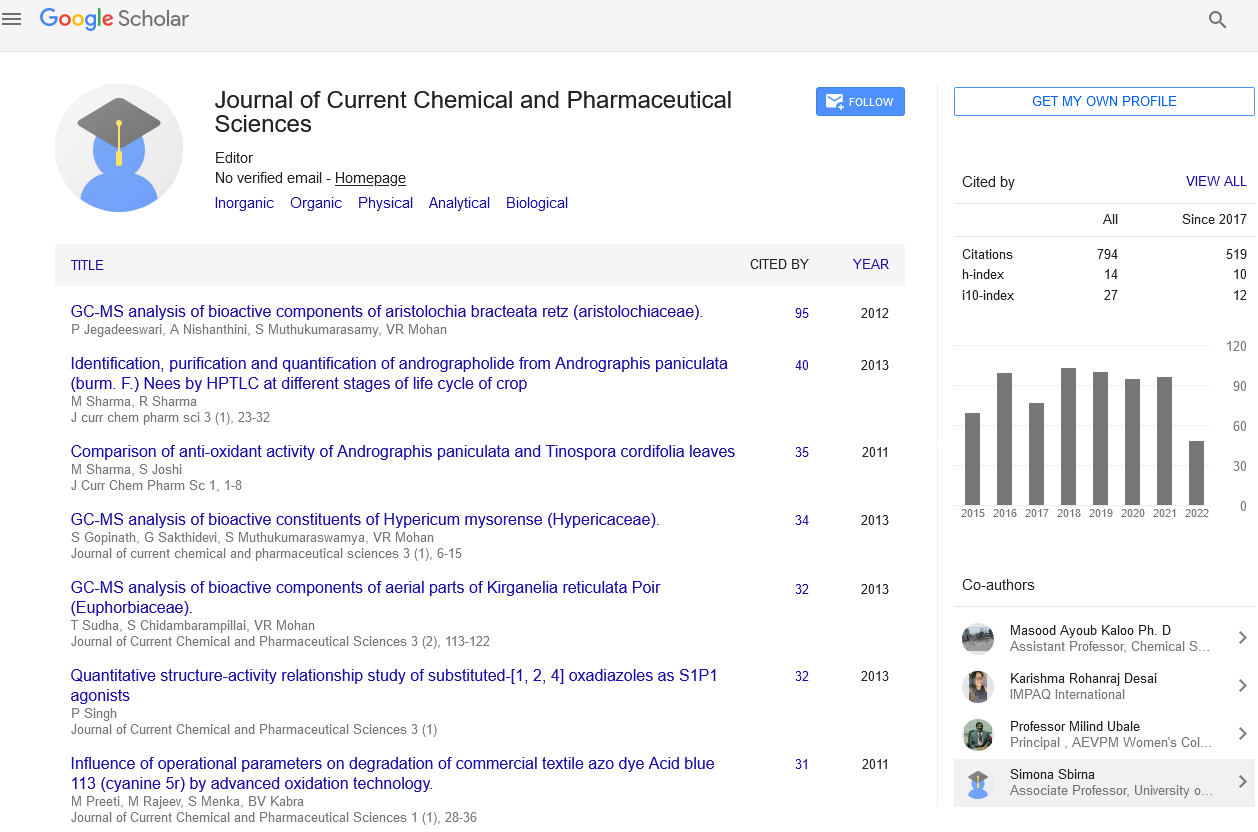Abstract
Sorption of Arsenic (V) Ions by Smz: Effects of pH, Temperature and Ionic Strength
Author(s): V. Swarnkar, N. Agarwal and R. TomarWe studied the ability of zeolite materials for sorption of arsenic from groundwater. We prepared three different prototypes of SMZ (surfactant modified zeolite) for arsenic sorption and eventually used one for further testing. Surface area and arsenic sorption capacity were analyzed for each fully prepared material. The major processes controlling As solubility in shallow ground water and other water sources are determining by effect of pH, Temperature and Ionic strength. Batch sorption kinetic and isotherm studies were conducted to compare and evaluate different types of sorbents As (V) ion sorption from aqueous media. Additionally, the effect of pH on sorption and the rate of sorption were determined for the SMZ material. All batch tests were performed using synthetic water based on the chemistry NM. Batch isotherms were performed on each SMZ material using arsenic concentrations that ranged from 0.1-0.5 N. Batch experiments were accompanied by small-scale experiments in the lab. The batch experiments showed that the SMZ has a maximum arsenic sorption capacity as calculated by the freundlich isotherm. The pH study showed that maximum arsenic sorption occurs at pH 7 and that sorption decreases below or above this pH value. The kinetic studies showed that 80% sorption is achieved. Arsenic sorption capacity varied greatly between the different types of newly created SMZ.
